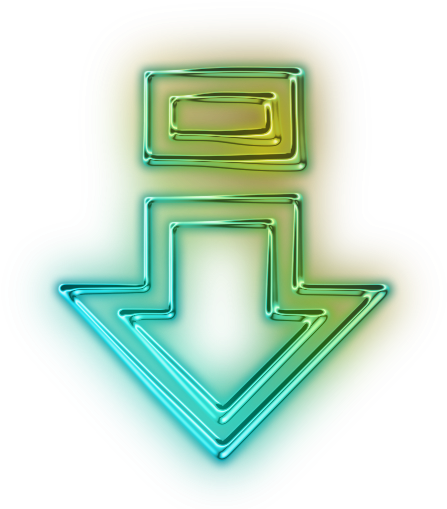สรุปคำนาม NOUN
28 ตุลาคม 2018
คำนาม (Noun) ทั้ง 7 ประเภท
1) คำนามทั่วไป (common noun) เป็นคำทั่วไปของ คน สัตว์ สถานที่ สิ่งของ สภาวะทั่วๆ ไป เช่น Man, month, city
2) คำนามเฉพาะ (proper noun) เป็นชื่อเฉพาะ Jack, January, Bangkok
*ดูง่ายๆคือชื่อจะขึ้นต้นด้วยตัวใหญ่
3) คำนามนับได้ (countable noun) คือคำนามที่นับจำนวนได้ จึงมีรูปเอกพจน์ (singular) และรูปพหูพจน์ (plural)
มาดูวิธีการเปลี่ยนจากของอันเดียว (เอกพจน์) เป็น หลายอัน (พหูพจน์)
ประเภทที่ 1 เติม –s ได้เลย
A doctor – doctors
A student – students
ประเภทที่ 2 เติม –es ถ้าลงท้ายด้วย o, ch, s, ss, sh, x, และ z
A tomato – tomatoes
A witch – witches
A bus – buses
A kiss – kisses
บางคำมาจากภาษาอื่น ให้เติม –s ไปเลย เช่น
Piano = pianos
Photo = photos
ประเภทที่ 3 ลงท้ายด้วย y (ถ้าเป็นพยัญชนะ) ให้เปลี่ยนเป็น i ก่อนเติม es เช่น Country - countries แต่คำนามที่ลงท้ายด้วย y (เป็นสระ) ให้เติม s เช่น Monkey = monkeys
ประเภทที่ 4 คำนามที่ลงท้ายด้วย f หรือ fe ต้องเปลี่ยน f หรือ fe เป็น ves เช่น คำนาม
Knife – knives/ Leaf - leaves /Life - lives/ Self - selves
ประเภทที่ 5 เปลี่ยนรูป (ไม่เยอะแต่ต้องจำ)
Man - Men/ Foot - Feet/ Child - children/ Ox - Oxen
ประเภทที่ 6 บางคำไม่ต้องเปลี่ยนรูป
พวกตระกูลปลา - fish, carp, salmon, trout, cod, mackerel, squid
สัตว์ต่างๆ - deer, sheep, swine
ยานพาหนะ - aircraft, craft
บางคำจะเป็นพหูพจน์เสมอ เช่น clothes, police, savings, stairs, surroundings, valuables, pains, thanks, contents, etc.
ของบางอย่างที่มาเป็นคู่ เช่น trousers pants, shorts, etc. (กางเกง มี 2 ขา)
เครื่องมือหรือของใช้ เช่น pliers, scissors, tweezers, binoculars, glasses, spectacles, etc.
4) คำนามนับไม่ได้ (uncountable noun)
สังเกตจาก พวกนี้จะเป็นเอกพจน์เสมอ และไม่มี a/an นำหน้า
พวกธรรมชาติ เช่น water, sugar, bread, gold, paper, dust, sand, hair, cloth, soap, ice, oil, glass, wood, meat, jam, chalk, mud, milk, salt, butter, rice, air, snow
ชื่อวิชาต่างๆ เช่น English, Japanese, history, geography, psychology
พวกกีฬาต่าง เช่น basketball, tennis, golf, baseball
พวกชื่อโรคต่างๆ เช่น mumps, measles, shingles (งูสวัด)
วิธีทำให้นับได้
He drinks a glass of milk every morning.
She bought a loaf of bread.
Please give me a piece of writing paper.
วิธีทำเป็นพหูพจน์
He drinks two glasses of milk every morning.
She bought three loaves of bread.
Please give me five pieces of writing paper.
5) สมุหนาม (collective noun) มาเป็นหมู่คณะแต่ยังนับเป็นเอกพจน์
family, staff, team, bunch, army, crowd, government, company, class, club, gang, band, committee
6) อาการนาม (abstract noun) ได้แก่ คำนามที่เรียกสิ่งที่ไม่มีรูปร่าง
ability, courage, death, fear, help, decision, experience, beauty, hope, pity, honesty, horror, knowledge, happiness, mercy, poverty, arrival, choice, shopping, camping
7) คำนามที่แสดงเพศ (gender) มีอยู่ 4 ประเภทคือ เพศชาย , เพศหญิง , เพศรวม และไม่มีเพศ
สำหรับเรียกคน
boy-girl, man-woman, son-daughter, uncle-aunt, father-mother, husband-wife, nephew-niece, bachelor-spinster, gentleman-
lady, bridegroom-bride, widower-widow, duke-duchess, king-queen, prince-princess, actor-actress, host-hostess, hero-heroine, waiter-waitress, salesman-saleswoman, god-goddess, heir-heiress, steward-stewardess
สำหรับเรียกสัตว์
drake, duck, bull, cow, cock, hen, gander, goose, ram, ewe, dog, bitch, tiger, tigress, lion, lioness
คำนามที่บ่งบอกเพศรวม
boy – girl = child son – daughter = child
man – woman = person father – mother = parent*
cock – hen = fowl ram – ewe = sheep
* คำว่า parent ถ้าหมายถึงทั้งพ่อและแม่ จะเป็นพหูพจน์ คือ parents แต่ถ้าพูดถึงคนใดคนหนึ่งเพียงคนเดียว คือ พ่อหรือแม่ใช้เป็นเอกพจน์ คือ parent
. ______________________________________________________________________________________ .
ครบทั้งเทคนิค Listening, Grammar & Reading
PRO! จาก 6,680 เหลือเพียง 3600 เท่านั้น!!
ทวนได้ไม่อั้น 1 ปี พร้อมสอบ!!

ไม่มีเวลาเตรียมตัว! เราเข้าใจ!
ขับไปสอนให้ถึงที่ ตัวตัวตัวกับ P'ม็อบ
12 ชั่วโมงนี้ โฟกัสไปที่น้องคนเดียวเท่านั้น!
8,900.-
พร้อมสอบ-หลังเรียนและติดตามผล!!











